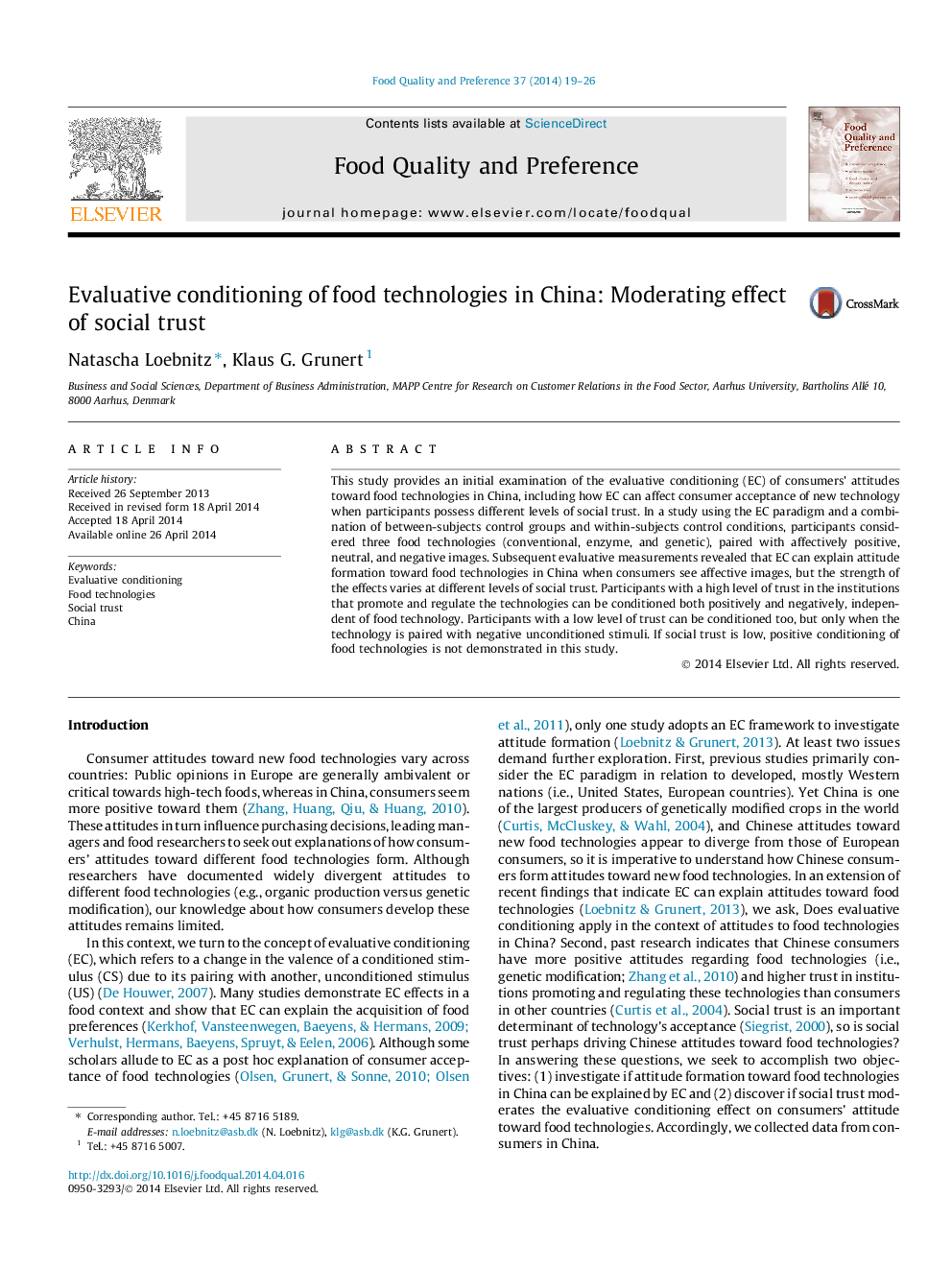| Article ID | Journal | Published Year | Pages | File Type |
|---|---|---|---|---|
| 4317200 | Food Quality and Preference | 2014 | 8 Pages |
•We test effects of evaluative conditioning (EC) on attitudes toward food technologies in China.•We explore the moderating effect of social trust in conditioning effects.•EC forms attitudes toward food technologies in China but effect depends on level of social trust.•Participants with a high level of social trust can be conditioned both positively and negatively.•Participants with a low level of social trust can only be conditioned negatively but not positively.
This study provides an initial examination of the evaluative conditioning (EC) of consumers’ attitudes toward food technologies in China, including how EC can affect consumer acceptance of new technology when participants possess different levels of social trust. In a study using the EC paradigm and a combination of between-subjects control groups and within-subjects control conditions, participants considered three food technologies (conventional, enzyme, and genetic), paired with affectively positive, neutral, and negative images. Subsequent evaluative measurements revealed that EC can explain attitude formation toward food technologies in China when consumers see affective images, but the strength of the effects varies at different levels of social trust. Participants with a high level of trust in the institutions that promote and regulate the technologies can be conditioned both positively and negatively, independent of food technology. Participants with a low level of trust can be conditioned too, but only when the technology is paired with negative unconditioned stimuli. If social trust is low, positive conditioning of food technologies is not demonstrated in this study.
